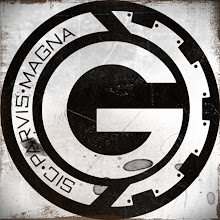The fallout from the now upgraded 9.0 earthquake that struck Japan, which saw a massive tsunami and nuclear meltdown follow in its wake, has devastated the island nation — for which the true lasting damage will likely take years to fully assess and understand. While the international community continues to rally around Japan, offering support and resources, the resolute country is showing its unwavering calmness and preparedness as it handles an event that many are comparing to those of World War II.
Paled in comparison to the events surrounding it, the Japanese motorcycle industry has naturally been affected by the natural disaster, with Honda, Suzuki, and Yamaha releasing press releases describing what measure their business are undertaking in these changing conditions.
Honda seems to have taken the worst of the damage, losing an employee during a wall collapse at its R&D facility in Tochigi, which also saw 30 other employees injured. Additionally, Honda’s automobile facilities in Saitama, Tochigi, Suzuka and Hamamatsu were closed today, with plans to re-open all of the facilities after March 20th. Honda’s Kumamoto plant manufacturers the Super Cub, CBR600RR, VFR1200F and DN-01 motorcycles.
Honda is donating ¥300 million ($3.7 million) towards the relief effort, and is also donating 1,000 gas-powered generators with 5,000 canisters of gas to help affected areas and rescuers.
Honda Racing (HRC) released a separate press release stating that the subsidiary did not withstand any major damages from the earthquake, tsunami, or nuclear meltdown. However the Honda Motor owned Twin Ring Motegi circuit sustained some cracks to its surface, and will have to undergo repair to the track and grandstand areas. Subsequently the MotoGP round scheduled for April has been moved to October.
Suzuki has issued a release stating that it will also be closing its plants as of today, as the company assess the damage to its operations. The company is expected to remained closed through March 16th, and may re-open on March 17th. Suzuki assembles motorcycle motors in its Takatsuka plant, while full motorcycle assembly takes place in its Toyokawa plant. Suzuki also has automotive facilities in Kosai, Iwata, Sagara, and Osuka.
Yamaha announced today that it will be closing its production facilities until Friday, possibly longer. The closure includes all five of Yamaha’s motorcycle production facilities. While its watercraft, car, and ATV plants will be closing as well, Yamaha will keep its generator production facility partially operational in order to meet any needs for electric production. Yamaha has pledged 500 generators to the relief effort, along with 4,000 bottles of drinking water, 5,000 emergency food rations, and 300,000 surgical masks.
Kawasaki has yet to release a press release on how it has been affected by the tragedy, but we imagine the company is taking similar measures to those of the other Japanese motorcycle manufacturers, as companies all around Japan are cutting back to help reduce the electrical burden on the country.

1 komentar:
A great company can survive from any unpredictable situation and won't loose with that situation. That words was done with Honda, Yamaha, Suzuki and Kawasaki. As huge vehicle companies, they can repair any damage from great earthquake. It is not surprising, because Japanese accustomed with earthquake and tsunami. What can be taken is any company must be ready with sudden conditions. Not just ready for market fluctuations but also for unpredictable disasters that damage any assets, like factories. Any corporation must have standard about working safety or disaster countermeasures. We know in this world, especially Asia, has low estimation and calculation about natural disaster. So when the disaster came there are so many victims, big loss and low countermeasure. So we must built a company that spry with all situations. Then any damage and loss marketing as soon as possible is fixed and covered.
Posting Komentar